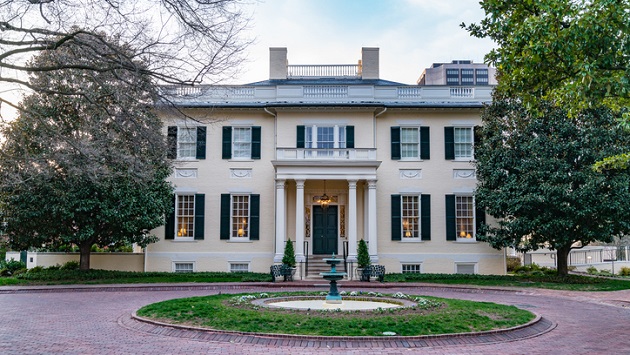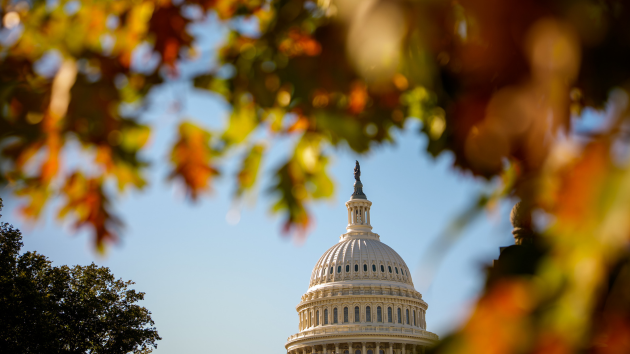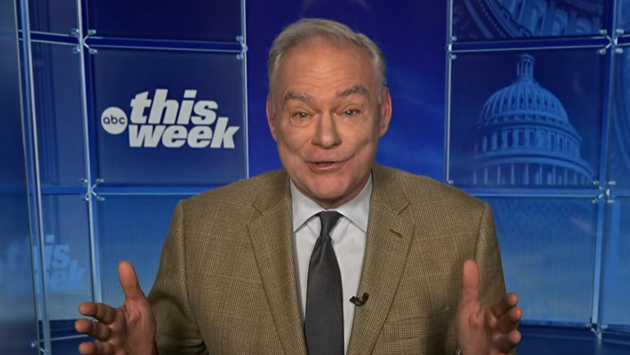‘People are hungry for more choices’: Inside the Green Party’s push for 2024
Written by ABC Audio ALL RIGHTS RESERVED on July 22, 2023

(NEW YORK) — With the 2024 presidential election heating up, debates over the role of third parties are beginning to simmer — and Democrats fear the Green Party could offer voters an enticing alternative who could hamper their chances in the general election.
At the center of those concerns is newcomer presidential candidate Cornel West, a philosopher and activist who announced his intent to run with the left-wing, populist People’s Party on June 5 before switching, saying on June 14 he would seek the Green Party nomination.
Bernard Tamas, a political science professor at Valdosta State University, told ABC News that American third-party candidates don’t need to win elections to be influential. Rather, they often “sting like a bee” and shock one of the two major parties to take up issues they’re passionate about.
Tamas believes that the best hope for Green Party members is that the Democratic Party will shift towards their preferred positions in an effort to neutralize the threat that they could siphon away voters.
“I don’t think anyone in the Green Party has any delusions that they’re going to win anything,” he said. “This is a way for the progressives, those on the left, to force the Democratic Party to take [seriously] issues that they take seriously.”
In other words, Tamas said, the possibility that West might cost Biden the election isn’t a coincidence: It’s a core part of third parties’ strategy.
“They’re between a rock and a hard place,” he said of the Green Party. “Stepping aside for this election, well, it would effectively end their impact at all.”
The stated priorities of the U.S. Green Party’s platform are decreasing the U.S. military budget, addressing global climate change through a transition from fossil fuels to renewable energy, social justice, and democratic reforms like the public financing of elections.
The U.S. Green Party has about 200,000 registered members as of July 2023, according to a party database, and 133 members of the Green Party hold elected office.
So far, the only candidate competing against West for the Green Party nomination is Randy Toler, a co-chair of Florida’s Green Party, who has filed to enter the race but has not yet formally begun his campaign. Toler is also running for Florida’s open Senate seat in 2024.
With the endorsement of Jill Stein, a two-time Green Party presidential nominee who is now West’s campaign manager, and as the only candidate who is actively campaigning so far, West is considered the clear frontrunner in the race.
Like the Democrat and Republican parties, the Green Party nomination will be decided through primaries or conventions across the country starting early next year, culminating in the 2024 Green National Convention. The date of the convention has not yet been announced.
No third party nominee has ever won a presidential election — but some famous third-party bids, such as that of businessman Ross Perot, may have shifted electoral outcomes, and campaigns from Teddy Roosevelt, Strom Thurmond and others even won a few states.
Who is Cornel West and why is he seeking the Green Party nomination?
According to his staff, West, who is a philosopher and former professor of the practice of public philosophy at Harvard University, switched to seeking the Green Party nomination because it is more widely listed on presidential ballots than his original selection of the People’s Party.
In order to appear on the ballot, presidential candidates need to meet state-by-state requirements – a fairly costly and labor-intensive endeavor. In the U.S., only a select few parties, like the Libertarian Party and the Green Party, have the organizational and grassroots support needed to meet those requirements across the country.
“It became clear that he needed a party that could actually get him on the ballot,” said Stein.
While the Democratic and Republican parties also have those resources, Stein argued, West sought a third party nomination because he believes neither party met the Green Party’s standards on the issues of climate change, the influence of corporations and wealthy donors in U.S. politics, and more.
“Dr. West is acting on the reality of the cards that we’ve been dealt,” said Stein. “If you know anything about the polls, you know that American voters have broken with the system. … People are hungry for more choices and more voices in this election and Dr. West is speaking to the deeply felt need.”
West’s candidacy has sparked fears and heated criticism from Democrats that the professor’s campaign could “spoil” the election for Biden, pulling votes away from the incumbent in vital swing states and tipping the election towards former President Donald Trump. In 2016, the number of people who voted for Stein, then the Green Party presidential nominee, exceeded Trump’s margin of victory in Michigan, though Stein has disputed that she cost Democratic nominee Hillary Clinton the election there, arguing that not all of her voters would have voted for Clinton otherwise.
“I think that Democrats have reason to worry,” Tamas said. “1% of the vote, 2% of the vote, could very well shift the election over to the Republican Party.”
Stein dismissed that possibility as “propaganda.”
“This is about the party elite protecting themselves,” she said. “To call that spoiling, when people like Dr. West stand up and offer people another way forward, instead of this pathway that has just been throwing working people, poor communities of color, under the bus, that’s just nonsense.”
West has also drawn backlash from progressives for a recent op-ed where he praised Florida Gov. and Republican presidential candidate Ron DeSantis for supporting a “classical education” oriented around the Western literary canon.
Which voters will West woo?
Given West’s background in racial justice, Tamas said the natural inclination would be to believe West could attract African American voters.
But history suggests that might not be the case, Tamas said. Historically, African-American voters have been a fairly risk-averse voting bloc, only voting for candidates that are thought to have good odds of winning.
“They are much less likely to jump on board to a challenge,” he said.
However, West’s left-wing platform could appeal to a certain base of progressive voters, said Melissa Deckman, a researcher and CEO of the Public Religion Research Institute. This is especially true among younger voters for whom socialism is an appealing economic policy divorced from its negative Cold War-era connotations.
“Generally speaking, the term ‘socialism’ is not one that is necessarily embraced by the general public. However, younger Americans, especially young women, I found in my research, tend to be more open to the concept of socialism,” Deckman said.
“Many Americans would say that capitalism as a system isn’t working well for them,” she continued. “For example, many Americans are struggling to make ends meet, increasingly because the cost of living is too high.”
Deckman also named climate change as a factor shaping some voters’ perception of capitalism. West has made the issue a pillar of his campaign, frequently naming “ecological collapse” as one of his key priorities.
The first challenge: Getting on the ballot
The potency of West’s campaign could turn on a set of relatively obscure proceedings surrounding ballot access laws. Each state has different rules for who can qualify to appear on the ballot for a certain office. Most states require candidates to gather signatures or pay a filing fee.
But the Green Party argues these laws unfairly benefit well-funded candidates.
“There’s always been, even in the Constitution, a check on the people,” wrote Tony Ndege, a co-chair of the Ballot Access Committee for the Green Party, in an email to ABC News. “They spin the propaganda of, ‘Well, these are the serious candidates.’ Well, they’re the candidates serious about remaining beholden to big money interests.”
The swing state of Pennsylvania could become a key battleground. The Green Party gathered the sufficient number of signatures for ballot access in that state during the last presidential election cycle, but it was disqualified from the ballot due to technical issues with how the requisite signatures were gathered. The Green Party is already on the ballot in two other key swing states: Michigan and Wisconsin.
Taken together, Ndege said he is expecting an “interesting 2024.”
“There will always be pushback from those in power when you are doing the right thing. I think that will intensify dramatically as the months continue,” Ndege said.
The party has not announced a date or location for its convention.
Copyright © 2023, ABC Audio. All rights reserved.
 KVSP
KVSP 




